Content
In Fall 2019, under the supervision of Professor James Le Sueur, the History Harvest program in the Department of History worked with the Yazidi Community in Lincoln on an oral history project. Over the course of the semester the students filmed a number of oral histories.
As with many projects of this magnitude, some of the finishing work spilled over into the next semester, and we were making great progress until the COVID-19 pandemic temporarily derailed us when our lab was closed in Spring 2020. Progress slowed. Nevertheless, over the rest of 2020, Emily Gengenbach took on the responsibility of transcribing and editing the interviews. We are happy to announce that we have completed the project, thanks to Emily’s dedication to seeing it through.
The History Harvest program is indebted to the Yazidi Cultural Center in Lincoln and to members of the community who allowed us to work with them documenting their history, culture, and place in the city of Lincoln and the state of Nebraska. This is Nebraska at its best.
The Department of History would like to thank Bruce Pauley for providing the funding for the History Harvest to do this ambitious, film-based oral history.
Contact the department for transcripts of the videos.
Selected Interviewee Biographies
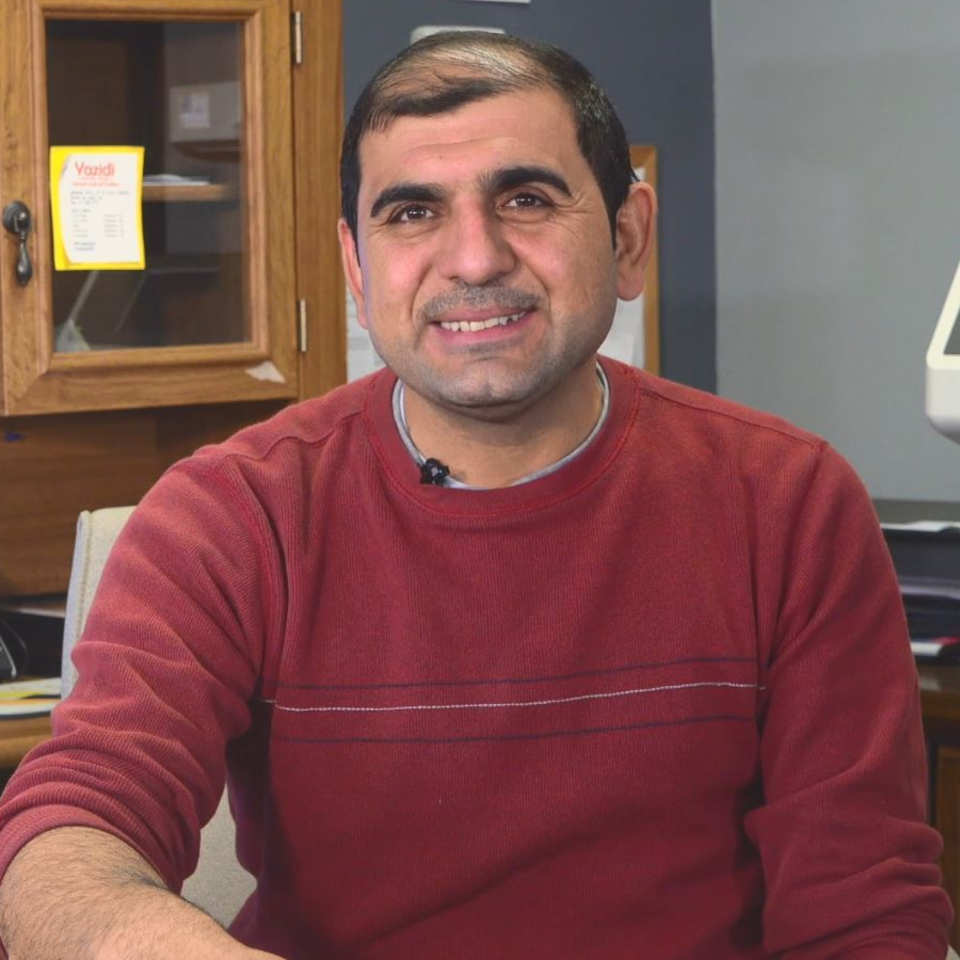
Shahab Basahar and his family survived ISIS’s 2014 genocide against Yazidi.
Shahab was born in Sinjar, Iraq in 1984 and has a Bachelor’s degree in General Biology from the University of Sulaimani, Iraq. After graduating he worked as a teacher for six years and as a lab technician for four years in Sinjar, Iraq. He is fluent in English, Arabic, and Kurdish (Kurmanji and Sorani) with three years’ experience in translation and interpretation.
Shahab and his family came to the United States from Sinjar, Iraq in February 2017. He is currently working as client assistance at Yazidi Cultural Center since 2019, and also as an interpreter and coordinator with Community Crops since 2018. He has a special interest in teaching and helping refugees.
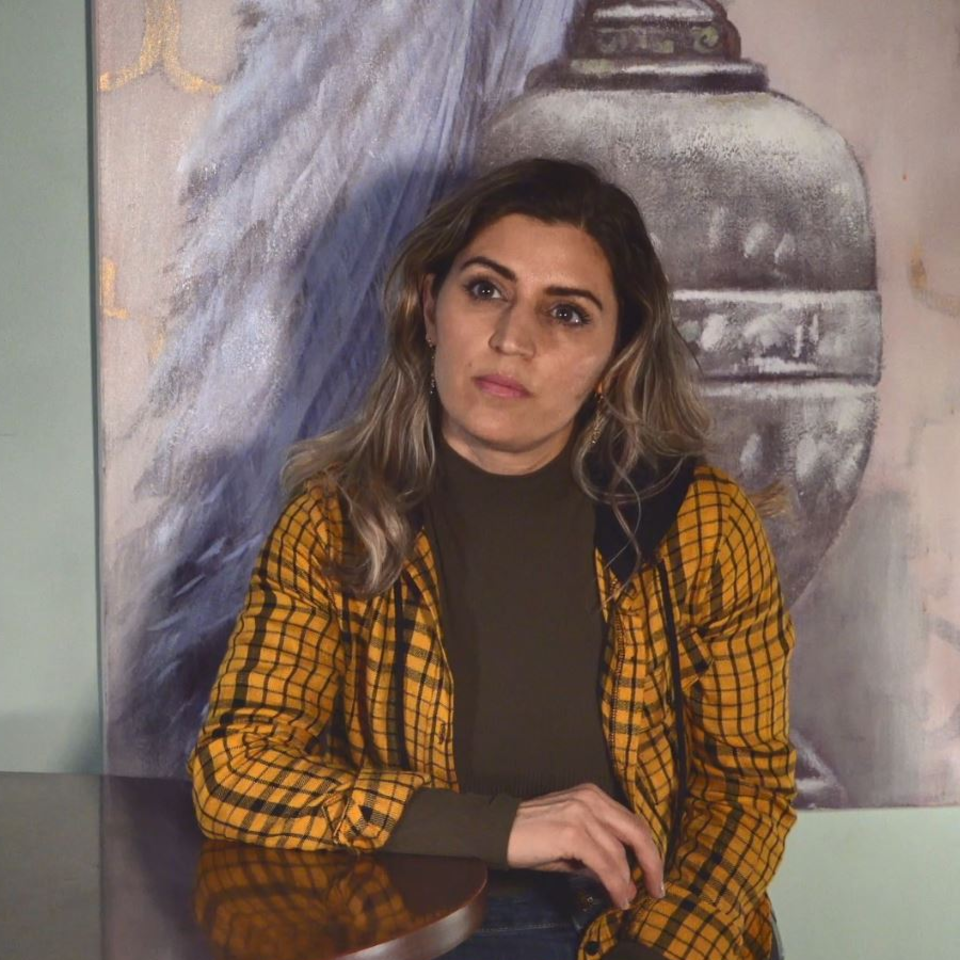
Laila Khoudeida is Co-founder and Director of Women Affairs at Yazda, a global Yazidi organization that continues to help victims in the aftermath of the fall of Sinjar, Iraq.
Laila was born and raised in a refugee camp in Syria after her father fled the war in Iraq. Her family lived in refugee camps for nearly ten years. They moved to the United States through UNICEF. A graduate of Wesleyan University, Laila currently works in the mental health field. She became an activist after the Yazidis were targeted for genocide by ISIS and has been involved in addressing the issue of violence against Yazidi women and victims of the Yazidi Genocide in the Middle East.
Laila was part of a Yazidi delegation to hold high-level meetings with representatives at the White House when ISIS carried a genocidal attack against the Yazidi minority in 2014. These efforts resulted in the US intervention to authorize airstrikes targeted at ISIS locations and humanitarian aid airdrops to the thousands of Yazidis that were stranded on Mount Sinjar.
Laila has been traveling around the world to create awareness of the Yazidi cause. In March 2020, Laila received the Lifetime Achievement Award from the New York City Bar Association and Huntington National Bank. Laila also received the Public Citizen of the Year Award from the National Association of Social Workers (NASW) for her advocacy work for the Yazidi community in 2015.
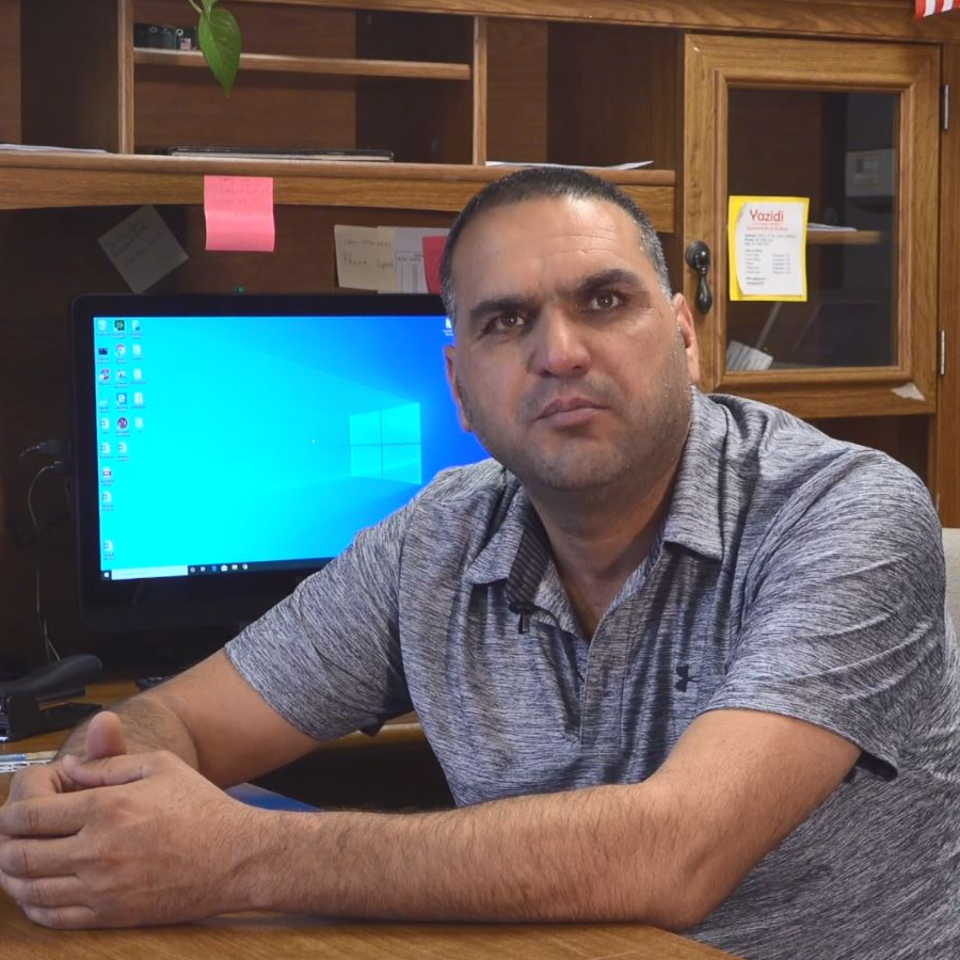
Ahmed Mastto is client assistance, interpreter, and coordinator with a special interest in teaching and helping refugees.
Ahmed has a Bachelor’s degree in College of Arts English department from the University of Mosul, Iraq. After graduating he worked as a teacher for 8 years in Sinjar, Iraq.
Ahmed is fluent in English, Arabic, and Kurdish, with 2 years’ experience in translation and interpretation with the US Army in Iraq. He came to United States with his family from Iraq in June 2016, and is currently working as client assistance at Yazidi Cultural Center since 2019.
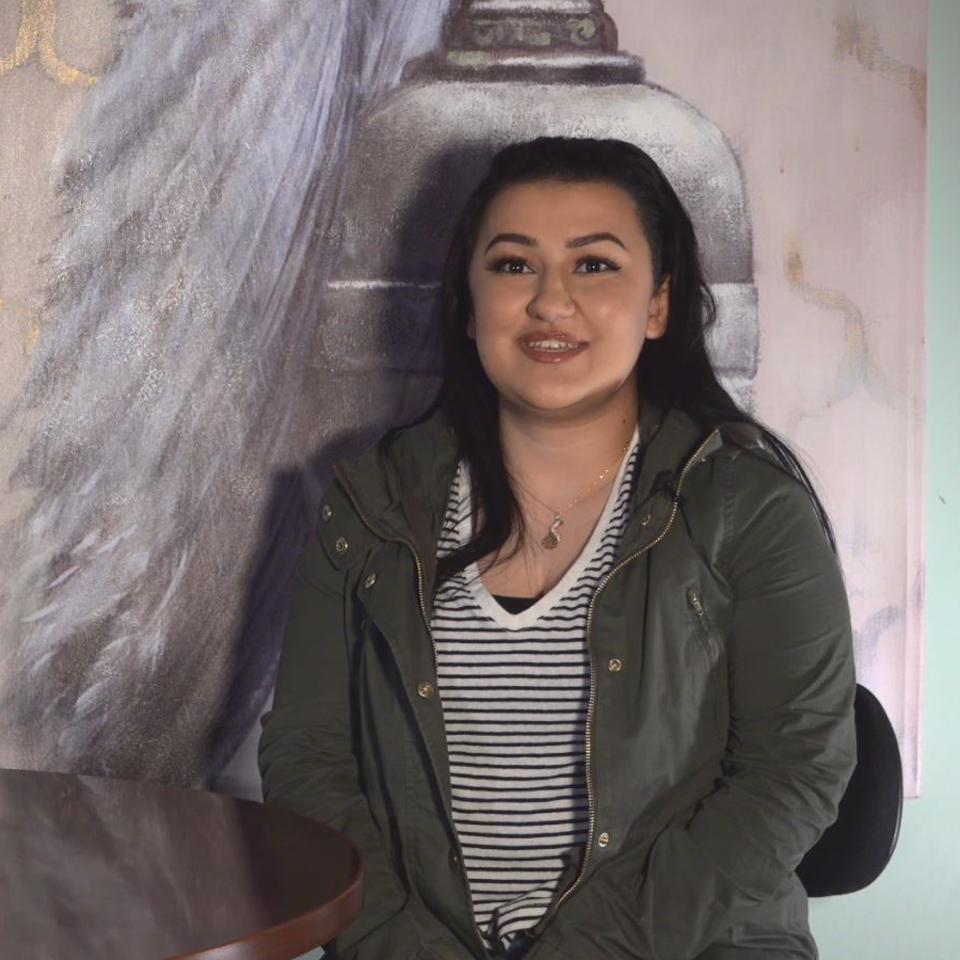
Shahnaz Osso was raised in Lincoln, NE after her family moved here in 1998 from a refugee camp in Syria, where they had spent the last 8 years.
Shahnaz was two years old when her family moved to the United States, as part of the first flight of Yazidis in the US. When the genocide of 2014 happened, Shahnaz felt compelled to do more to help, leading her to organize multiple fundraisers, speaking events, and media appearances to raise awareness and support for the Yazidis escaping ISIS.
Currently, Shahnaz is working in the mental health field in an administrative role, while also interpreting for Yazidi patients during their therapy appointments. Shahnaz is passionate about mental health and specifically refugee mental health and PTSD. Shahnaz will be attending school at UNL in the winter of 2021, to study English Education, in an effort to make education more diverse and also more accessible to refugees and immigrants.
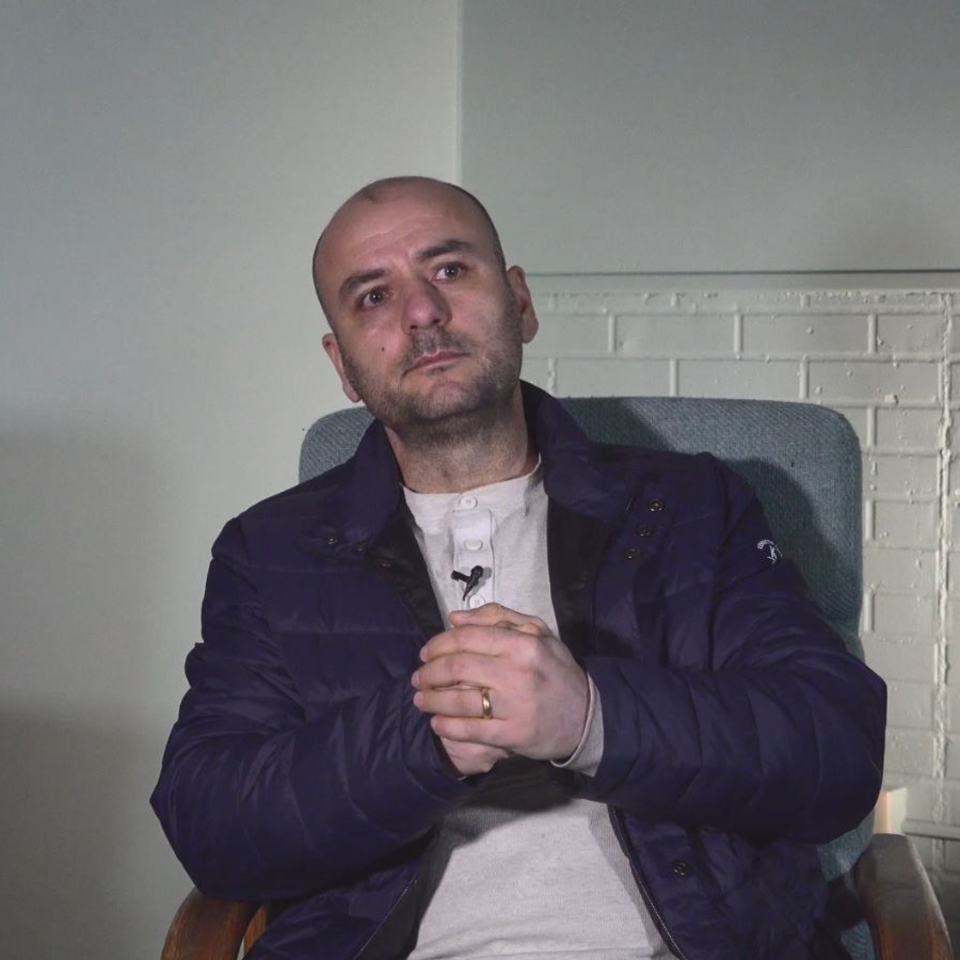
Khedir Qassim is originally from Khanasur village, Sinjar (Shingal) in the northwest corner of Iraq.
Khedir worked with US armed forces right after Operation Iraqi Freedom in 2003 as cultural advisor and interpreter. He migrated to the United States in early 2013 as part of a special immigrant visa (SIV). Khedir stayed in Houston, TX first for few years and then decided to settle in Lincoln, NE, in order to reunite with family and friends.
He’s currently working full time job for a utility company in Lincoln and studying for a master’s degree, majoring in cybersecurity at the University of Nebraska-Omaha. He’s also married and has a very precious daughter. Some of Khedir’s favorite hobbies include reading articles, watching documentaries, travelling, trying new foods, photography, and cooking and trying new recipes.
Additional Video Biographies
© Department of History, University of Nebraska-Lincoln. Audio or visual reuse of these interviews is prohibited. The material can be cited with acknowledgment of the source.